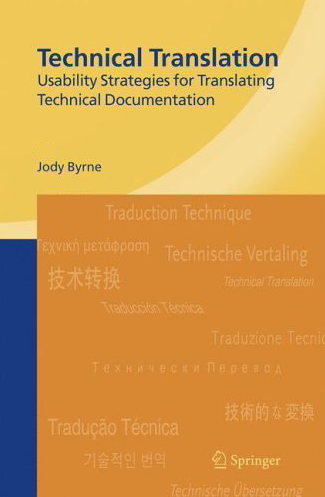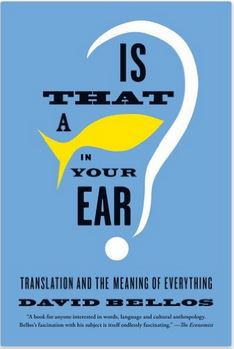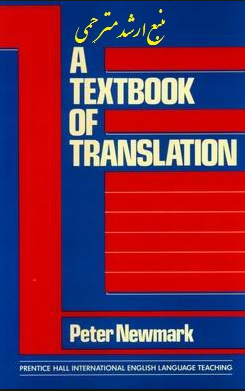Our Community
Get to know our community
Join Translation Journal
Click on the Subscribe button below to receive regular updates.
Olga Terentyeva
Question and Answer
- What is your name?
- Olga Terentyeva
- Where do you live?
- Brighton, UK
- How long have you been an interpreter or translator?
- 8 years
- What made you decide to become a translator or interpreter?
- I have a love for languages and learning new skills.
- List one strength that you think sets you apart from your colleagues.
- Thoroughness
- Name the one thing that you most enjoy in your translating or interpreting career.
- Challengess
- We all have worked on those not-so-perfect assignments. Write about one such assignment that was not ideal and what you learned from it.
- Once I was translating a text which I did not enjoy at all because of its fustian inflated style. Personally myself I would never read this. I do not like when people lie, especially when they speak lies in such high words. Brr. Sometimes we just have to do our job.
- If you could go back in time to when you were just starting out as a translator or interpreter, what advice would you give to your younger self?
- Read more! There are so many resources available to help translators to acquire knowledge and new skills.
- Name one resource – such as a phone app, CAT tool, website, and so forth – that you find especially helpful in your translating or interpreting work.
- Google (it helps to find out how something works)
- What’s the best book you’ve read this year?
- "Technical Communication: Usability Strategies for Translating Technical Documentation" by Jody Byrne
This introduction to technical translation and usability draws on a broad range of research and makes the topic both accessible and applicable to those involved in the practice and study of translation. Readers learn how to improve and assess the quality of technical translations using cognitive psychology, usability engineering and technical communication. A practical usability study illustrates the theories, methods and benefits of usability engineering.
Giovanna Lester
Question and Answer
- What is your name?
- Giovanna Lester
- Where do you live?
- Pinecrest. Fl
- How long have you been an interpreter or translator
- 35 years as both
- What made you decide to become a translator or interpreter?
- It was the only job available at the time.
- List one strength that you think sets you apart from your colleagues.
- Bi-cultural knowledge.
- Name the one thing that you most enjoy in your translating or interpreting career.
- The learning.
- We all have worked on those not-so-perfect assignments. Write about one such assignment that was not ideal and what you learned from it.
- Agency missbooked me for the wrong language (PTBR vs PTPT) but explaining the situation to the lawyers and the handy Oxford-Duden made the situation bearable and fruitful. "Keep your tools handy!"
- If you could go back in time to when you were just starting out as a translator or interpreter, what advice would you give to your younger self?
- Take some business classes!
- Name one resource – such as a phone app, CAT tool, website, and so forth – that you find especially helpful in your translating or interpreting work.
- CAT tools
- 8.) What’s the best book you’ve read this year?
- Is That a Fish in Your Ear? by David Bellos
An NBCC Award and Los Angeles Times Book Award finalist
A New York Times Notable Book for 2011
One of The Economist's 2011 Books of the Year
People speak different languages, and always have. The Ancient Greeks took no notice of anything unless it was said in Greek; the Romans made everyone speak Latin; and in India, people learned their neighbors' languages―as did many ordinary Europeans in times past (Christopher Columbus knew Italian, Portuguese, and Castilian Spanish as well as the classical languages). But today, we all use translation to cope with the diversity of languages. Without translation there would be no world news, not much of a reading list in any subject at college, no repair manuals for cars or planes; we wouldn't even be able to put together flat-pack furniture.
Is That a Fish in Your Ear? ranges across the whole of human experience, from foreign films to philosophy, to show why translation is at the heart of what we do and who we are. Among many other things, David Bellos asks: What's the difference between translating unprepared natural speech and translating Madame Bovary? How do you translate a joke? What's the difference between a native tongue and a learned one? Can you translate between any pair of languages, or only between some? What really goes on when world leaders speak at the UN? Can machines ever replace human translators, and if not, why?
But the biggest question Bellos asks is this: How do we ever really know that we've understood what anybody else says―in our own language or in another? Surprising, witty, and written with great joie de vivre, this book is all about how we comprehend other people and shows us how, ultimately, translation is another name for the human condition.
Ahmad Assaqqaf
Question and Answer
- What is your name?
- Ahmad Assaqqaf
- Where do you live?
- I live in Makkah, Saudi Arabia.
- How long have you been an interpreter or translator?
- 4 years
- What made you decide to become a translator or interpreter?
- What made me decide to be a translator several matters:
- When I was young, one of our neibor neighbours was An American Family. oneday, their child closed the door of a room which can't opened from outside except if its key is available. so when they wanted to tell me about this problem, I couldn't understand because I didn't know English at that time and because i'm blind.
- When I was met by foreigners, tourists or other people coming from outside the country, I couldn't communicate with them properly.
- When I had a catalog or anything written in English, either I used to put it a side until anybody knows English read it for me or I had to try to translate via translation programmes.
- What made me decide to be a translator several matters:
- List one strength that you think sets you apart from your colleagues.
- One thing is that must be careful when translating: meaning to say that I must not affect the meaning of a text in the source language with the other in the target language
- Name the one thing that you most enjoy in your translating or interpreting career.
- One thing is translating letters, complaints, leagl texts and contracts for Nozoly LTD where I am working.
- We all have worked on those not-so-perfect assignments. Write about one such assignment that was not ideal and what you learned from it.
- I think this reminds me with translating a text about food, calories and nutritions. What I learned is that if you can't do something, leave it and do another you can. Also I learned that nothing is impossible.
- If you could go back in time to when you were just starting out as a translator or interpreter, what advice would you give to your younger self?
- The advice is to be a good translator, you have to translate daily and to apply this method to all matters related to your carrers in life.
- Name one resource – such as a phone app, CAT tool, website, and so forth – that you find especially helpful in your translating or interpreting work.
- One resource is a translation book called translation as problems and sollutions by dr Hasan Ghazalah.
- What’s the best book you’ve read this year?
- The best book is translation theory by Newmark.
Ahmet Yalcinkaya
Question and Answer
- What is your name?
- Ahmet Yalcinkaya
- Where do you live?
- Turkey
- How long have you been an interpreter or translator?
- 28 years
- What made you decide to become a translator or interpreter?
- From my childhood in Germany on, I enjoy to learn new languages, and to use them. I discovered that one of the best way to improve language skills is to translate a lot. The other important way is to teach. After having thought about it many times, I decided to be a professional translator, and to practice it at least as freelancer.
- List one strength that you think sets you apart from your colleagues.
- Being also an engineer, I am analytic, and use this skill in my translation projects as well.
- Name the one thing that you most enjoy in your translating or interpreting career.
- After I deliver my translations, the project manager of the translation company, the senior translation coordinator, or directly the client thanks for the completed job. This is what I enjoy most.
- We all have worked on those not-so-perfect assignments. Write about one such assignment that was not ideal and what you learned from it.
- Once, I had to translate an advertising and launching project prepared for a brand of wine. I do not like alcoholic drinks, but as the coordinator requested a lot, I accepted the job. After I started, I felt myself uncomfortable, and got worse from day to day. At the end, I asked a colleague working for the same office to complete the job. I learned from this experience that one should not do any job he or she would not like even if their managers or potential clients insist on it.
- If you could go back in time to when you were just starting out as a translator or interpreter, what advice would you give to your younger self?
- I would advice to be more selective for the sake of optimum use of time and for future in depth expertise in intended fields of specialties.
- Name one resource – such as a phone app, CAT tool, website, and so forth – that you find especially helpful in your translating or interpreting work.
- Trados was very useful when I was young. Temporarily, I cannot use Trados. Across is now very helpful for me, and as it is free of charge, my assistants can also use it when necessary.
- What’s the best book you’ve read this year?
- A Portrait of the Artist as a Young Man by James Joyce

The first, shortest, and most approachable of James Joyce's novels, A Portrait of the Artist as a Young Man portrays the Dublin upbringing of Stephen Dedalus, from his youthful days at Clongowes Wood College to his radical questioning of all convention. In doing so, it provides an oblique self-portrait of the young Joyce himself. At its center lie questions of origin and source, authority and authorship, and the relationship of an artist to his family, culture, and race. Exuberantly inventive in style, the novel subtly and beautifully orchestrates the patterns of quotation and repetition instrumental in its hero's quest to create his own character, his own language, life, and art: "to forge in the smithy of my soul the uncreated conscience of my race."
This Penguin Classics edition is the definitive text, authorized by the Joyce estate and collated from all known proofs, manuscripts, and impressions to reflect the author's original wishes.
For more than seventy years, Penguin has been the leading publisher of classic literature in the English-speaking world. With more than 1,700 titles, Penguin Classics represents a global bookshelf of the best works throughout history and across genres and disciplines. Readers trust the series to provide authoritative texts enhanced by introductions and notes by distinguished scholars and contemporary authors, as well as up-to-date translations by award-winning translators.


